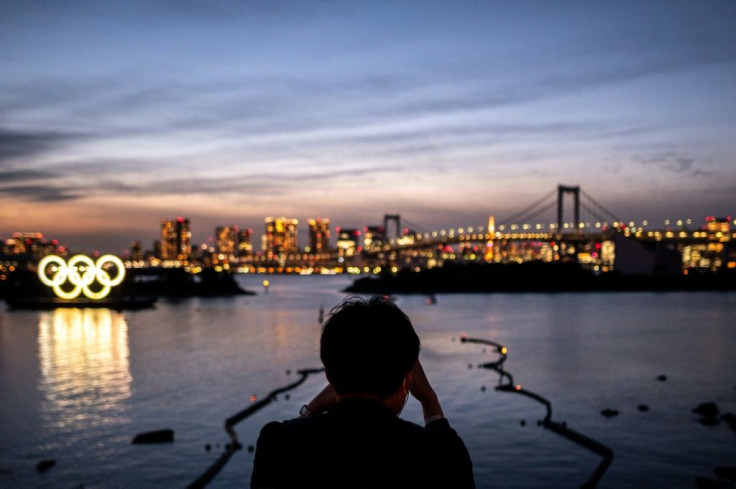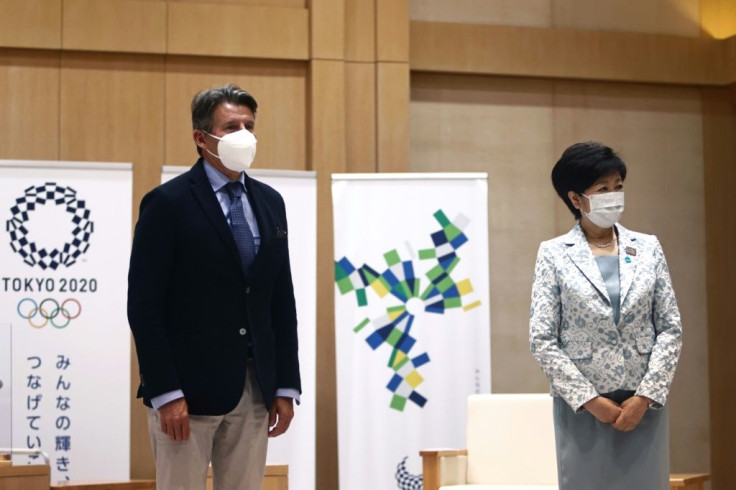Japan Extends Virus Emergency As Olympics Approach
A virus state of emergency in Tokyo and other parts of Japan was extended on Friday, less than three months before the Olympics, with restrictions also imposed in more regions as cases surge.
The emergency measures, less strict than blanket lockdowns in other countries, had been due to end on May 11 but will continue until the end of the month, Prime Minister Yoshihide Suga said.
"The number of new virus cases is at a high level in major cities, while hospitals continue to be overwhelmed in Osaka and Hyogo prefectures," he said.
Japan's Covid-19 outbreak remains much smaller than in many countries, with just over 10,500 deaths.
But its vaccine rollout is moving slowly and some areas have seen record cases as more infectious variants drive fresh waves of contagion.
Suga said the country of 125 million aims to ramp up its vaccine drive to "one million doses a day" using mass inoculation centres, adding that he wants Japanese Olympic athletes to be vaccinated.

Fukuoka and Aichi prefectures were added to four regions that have been under emergency measures for two weeks: Tokyo, Osaka, Hyogo and Kyoto.
The state of emergency restricts commercial activity, with bars and restaurants told to shut or stop serving alcohol.
Some rules will soon be eased despite the extension, such as allowing a limited number of fans back into sports stadiums.
The pandemic-postponed 2020 Games open on July 23, and Japan's government and Olympic officials insist they can go ahead safely -- although polls show most Japanese people support cancellation or another delay.
More than 230,000 people have signed an online petition titled "Cancel the Tokyo Olympics to protect our lives", launched Wednesday by a lawyer and former Tokyo gubernatorial candidate.

Games president Seiko Hashimoto said she would welcome a visit by IOC president Thomas Bach this month, but that it would be "very difficult" to arrange given the prolonged state of emergency.
The emergency also caused the two-day section of the Olympic torch relay in Fukuoka prefecture next week to be scrapped.
It will be drastically scaled back to two short off-road ceremonies, Tokyo 2020 said. Several other legs of the relay have been pulled from public roads to prevent people gathering to watch.
The Games organisers said the Diving World Cup, which went ahead in Tokyo this week, was an example of a "very successful" event held with athletes from overseas.
"All participants fully complied with the measures in place," Tokyo 2020 said in a statement.
However, a number of other Olympic test events and qualifiers have been postponed, cancelled or moved abroad.
Pfizer and its German partner BioNTech on Thursday announced a deal with the International Olympic Committee to provide vaccines to competitors and staff at the Tokyo Games.
But Japan's own vaccine programme is progressing cautiously, with under one percent of the population having received two shots so far.
World Athletics boss Sebastian Coe, who attended a scaled-back rehearsal for the Olympic marathon in the northern city of Sapporo on Wednesday, said Friday he recognised the "challenging times" faced by Japan.
"The safety of our athletes is important to us, but also the safety of the local community," he told reporters in Tokyo.
Olympics organisers are yet to decide how many fans -- if any -- will be allowed at the Games, with overseas spectators already barred from attending.
© Copyright AFP {{Year}}. All rights reserved.





















